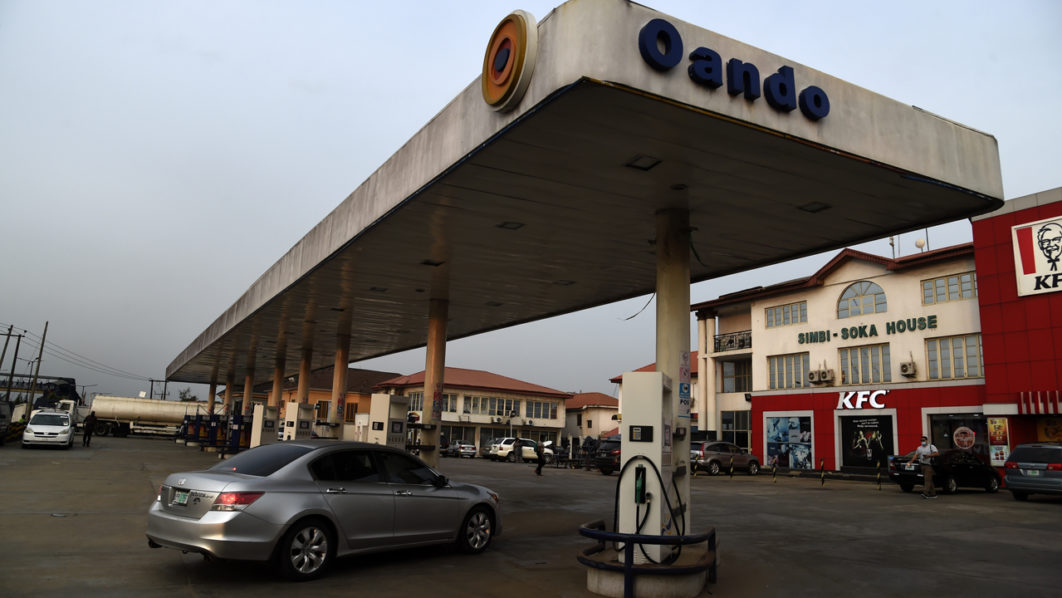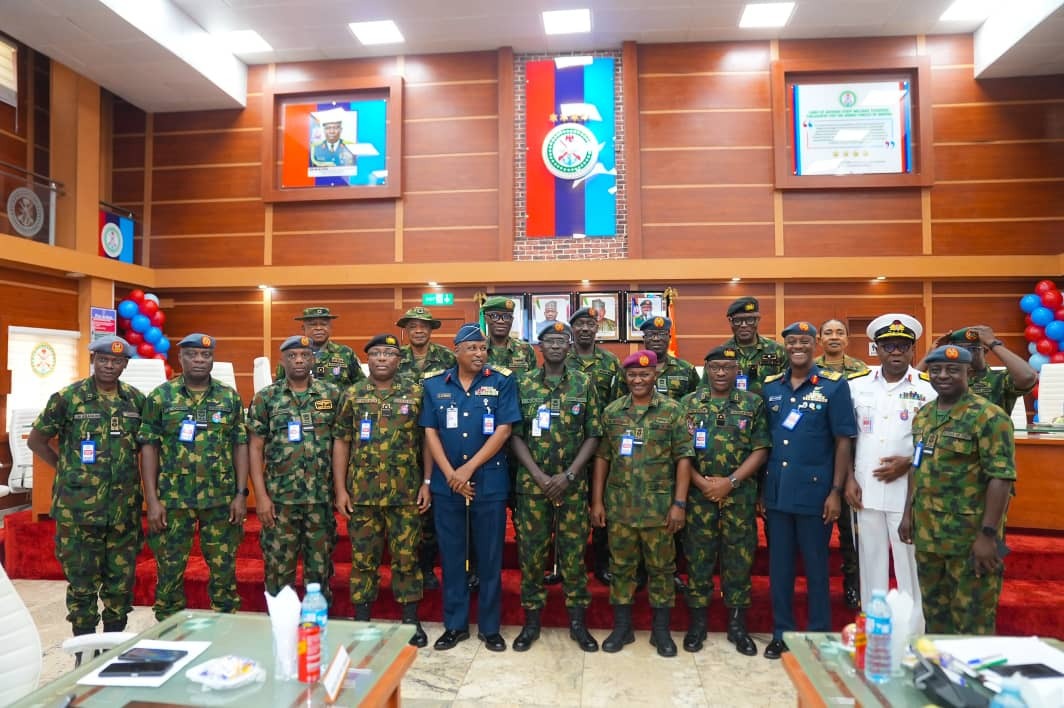
Petroleum arketers in some parts of the country have failed to adjust the pump price of Premium Motor Spirit (PMS) better known as petrol to N162, despite agreements between Federal Government and the organised labour to that effect.
Six days after the announcement of the new template, which removed N5 from the previous price of N166 per litre, the product is still selling at between N166 to N170 per litre in most fuel stations across the country.
Furious over the repeated hike in petrol price, the organised labour, especially the Nigerian Labour Congress (NLC) and Trade Union Congress (TUC) had dragged the Federal Government to a dialogue, where the Nigeria National Petroleum Corporation (NNPC) agreed to slash N5 from N167.44, a development, which the Minister of Labour and Employment, Dr. Chris Ngige, stated that the reduction would bring down the price of petrol to N162.44K.
However, the petrol marketers, particularly the Independent Petroleum Marketers Association of Nigeria (IPMAN) immediately denied knowledge of any reduction in pump price, stressing that they were never carried along on the matter.
The vice president of the association, Abubakar Maigani Shettima, told The Guardian that although the association asked its members to comply with the new price, most depot owners, especially private depots, (which makes up about 80 per cent of the market) failed to implement the new price.
Shettima said just about 20 per cent of depots, especially NNPC depots complied with the new price, adding that it would be difficult to dispense products at a lower price if the ex-depot price remained the same.
The development came amidst existing clamour for a transparent pricing system, which would be determined by market forces and other variables and remain open to stakeholders.
Nigeria had earlier announced the deregulation of the downstream segment of the petroleum industry after the government suspended a subsidy regime allegedly immersed in corruption and secrecy.
Although the pump price of petrol was reduced immediately the government deregulated the market following the low price of crude at the international market, the price has, however, risen steadily from June. The price rose from N121.50 to N123.50 per litre in June; N140.80 to N143.80 in July and N148 to N150 in August.
In September, pump prices rose further to N158 and N162 per litre. The recent ex-depot price in November took the price to N168 per litre.
In major cities in Nigeria, including the Federal Capital Territory, the new price has failed to work, and marketers are still selling above the previous price.
In Abuja, except in government-owned retail outlets, and NNPC retail outlets, petrol prices currently hover between N164 and N166.
In parts of Kogi State, the pump price has already jumped to about N170, while in Benin, Edo State, some petrol stations, including Conoil and Voe were dispensing at around N166 per litre.
In Offa, Kwara State, fuel was sold for N168 per litre, while the product went for between N169 and N170 per litre in some filling stations. It was the same situation in Warri, Delta State, where motorists settled for an average pump price of N167.
In some parts of Ilorin, Kwara State, Bovas Filling Station sold for NI65, Rain Oil sold for N166 and N168. In Yola, Adamawa State, the product went for N164.
However, the Department of Petroleum Resources (DPR) said it was monitoring compliance with the new pump price across the country, stressing that apart from ensuring marketers sell with the price band, mechanisms were also in place to stop hoarding of the product, especially during the festive season.
Spokespersons for DPR, Paul Osu told The Guardian that although the market has been deregulated, the agency would ensure marketers caught in activities that were against market practices were duly penalised.
The President of NLC, Ayuba Wabba did not respond to phone calls and text messages on the issue before the report was filed.
Meanwhile, five years after President Muhammadu Buhari took over as the Minister of Petroleum Resources, the country’s oil and gas sector has remained in limbo as stakeholders insisted that expected changes and investments have remained elusive.
Accounting for over 80 per cent of the country’s foreign exchange earnings, and a key revenue source, the ailing oil and gas sector, according to most stakeholders, has had its worst performance in the last five years, as weak investment outlook, poor fiscal and governance framework, lopsided appointments, stagnated reserves and daily production, corruption, zero refining capacity and other challenges persist.
Buhari had in October 2015 taken over as petroleum minister at a time the oil market was faced with glut, as the country was being displaced by Shale Oil from its once competitive sweet crude, as well as a cloudy environment requiring urgent reform to attract investments, which were becoming scare due to pressure from cleaner fuel.
With the Warri, Port Harcourt and Kaduna refineries performing abysmally then, the 445, 000 barrels per day, refineries currently operate at zero capacity, as the country still swapped about 330, 000 barrels per day with other refineries abroad before importing to Africa’s oil leading producer.
Although the Petroleum Industry Bill (PIB) is said to be making some progress at the National Assembly after being sent in as an executive bill, Buhari specifically declined his assent to the bill after it made the most progress during the 8th Assembly, a development which stakeholder noted was a serious setback for the industry.
Although most civilian presidents, except Goodluck Jonathan, doubled as petroleum ministers, professor emeritus of energy economics, Prof. Wunmi Iledare looking at a cost-benefit analysis of the industry’s output, said there was evidence of declining performance from 2015 to 2019 relative to 2010 to 2015.
He, however, noted that it was uncertain whether a substantive minister other than the president would have moved the industry beyond its current moribund state.
“Why? I have not seen any minister today in the non-oil sector, who has done anything extraordinary, or made any major stride in value creation without tactically second-guessing himself in a seemingly micro, or over the shoulder management manner of surrogates of the presidency,” Iledare said.
According to him, having a technocrat as petroleum minister perhaps would have been more of the right thing to do under the circumstances that we’ve found ourselves, but the empirical evidence is not very supportive of the plausibility of expectations.
Iledare, who noted that the oil sector remained very critical to the country’s economy, added that the enormous duties of the minister of petroleum in the Petroleum Act, in comparison with the duties of the presidency has potential for negative unintended consequences.
For the Chief Executive Officer (CEO) of International Energy Services Limited, Dr. Diran Fawibe, oil and gas projects hovering around N160 billion, which would have seen the light of the day (if the sector had performed better) have remained elusive in the country.
Fawibe also sees the inability to pass the PIB, as a critical issue that the current administration has failed to urgently address, especially as investments for fossil fuel faces strict competition from across the world.
He further noted that while oil companies, including the indigenous organisations were eager to invest and make strides in the industry, the sector remained uncertain, especially the fiscal outlook of the industry.
The CEO said the country’s gas resources have also not been harnessed as they ought to, adding that while the downstream has been deregulated, the segment remained unclear to stakeholders and the public.
He also mentioned the need to rehabilitate the refineries, adding that the country plays too much politics that undermine the development of the sector.
Fawibe, who stressed that some programmes of the administration were laudable, especially the deregulation of the downstream sector, drive towards gas development, the rollout of Autogas and others, but added that these initiatives could be better.
Principal Partner at Nextier, Patrick Okigbo, who was recently appointed a senior fellow at Harvard University, noted that the problem rocking the sector was not on the technocratic status of the minister.
“Don’t get me wrong; such a technical ministry (as the many others) should be headed by technocrats. However, you would recall that we have always had technocrats leading the ministries. The problem there is the government’s lack of will to solve the problem. By the way, most of the technical solutions are known, but again, the government misconstrues technical or economic problems for political problems,” Okigbo said.
He noted that the first thing that must be done to get the sector back on track is to pass the PIB, adding that doing so would eliminate uncertainty in the sector and open it up for investments.






